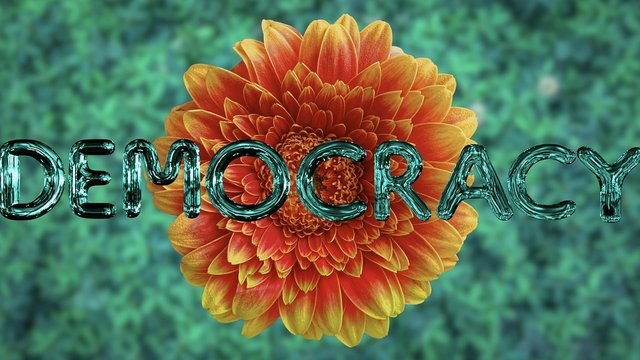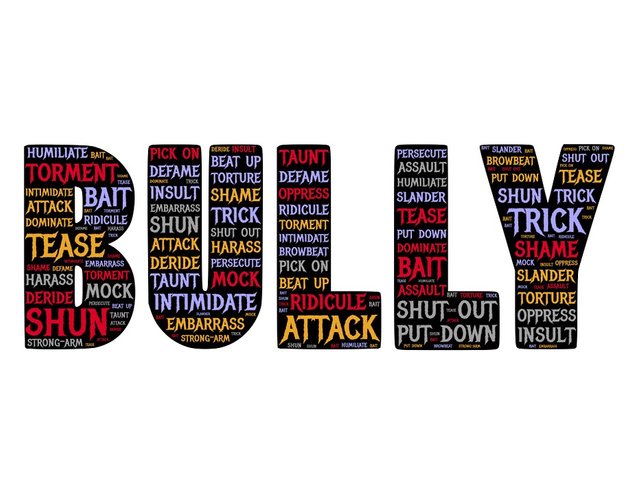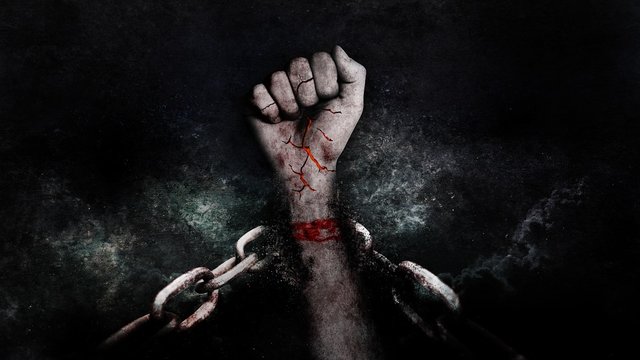Democracy versus Liberty
For as long as I can remember, I have been taught that democracy was synonymous with liberty. You couldn't have the latter without the former. They were inseparable concepts. With democracy, we were promised a government that represented us, worked for our best interests, and worked to protect us from those who seek to prey on the honest populace. We need free markets for a free society! And any regulations that might irk us are just there for our own good. This was on the news, in the movies, in the history books, and embedded in the curriculum of every other subject in school.

Image credit
Of course, we also learned at the same time that those godless communists, the enemies of freedom and democracy, had the unmitigated gall to pollute their media and educational system with self-serving propaganda that practically turned the State into their state religion. They indoctrinated their subjects with lies and half-truths to ensure public acceptance for whatever the government wanted to do. They trample the rights to life, liberty, and property in the name of a "common good" that turns out to be not good at all for the commoner. We must make the world safe for democracy!
Now, some of this is half-correct. Immutable economic laws that result from the physical world around us and the nature of human action mean that command economies cannot function effectively. The economic calculation problem is real. Monopolies promote waste and abuse without exception. But this is as much an indictment of modern "democracies" as it is of Stalinist regimes behind the iron curtain. The difference is only in scale, not in kind.
Meanwhile, the socialist points out how in a "democracy," the corporate interests inevitably collude with the government to fix prices, stifle competition, restrict choice, and impose innumerable laws upon the people to benefit the politically connected. Is democracy in fact truly safe for the world?
The "mixed economy" so often touted as a middle road between the unbridled excess of liberty and the crushing totalitarianism of the police state is presented as a rational, level-headed solution. But is any of this an accurate diagnosis of the problem, much less a good prescription to cure the economy? No, and both the advocates of democracy and the advocates of socialism (regardless of brand) are creating a false dichotomy. Freedom comes from recognizing individual liberty, not from trying to decide which governmental system to use. As Daniel Webster wrote,
There are men in all ages who mean to govern well, but they mean to govern. They promise to be good masters, but they mean to be masters.

Image credit
Whatever system is proposed, the underlying philosophy is that someone else needs to have superior authority over your life, your liberty, and your property. You are intended to be a subject. And no matter how much they chafe under the imposed rulership from others, they seek to be the new ruling class themselves. Their intentions may be good, but their actions are the same as those they claim to oppose.
Corporate interests fear the free market because they need subsidies, bailouts, sweetheart contracts, regulatory capture, and the means to externalize the costs of their bloated bureaucracies. However, they call this system "capitalism," the same word used by advocates of the free market that rejects such protectionism and control. This confusion of definitions results in endless arguments that go nowhere when anyone tries to have a serious conversation about the core ideas.
Socialists fear the free market because they insist that "property is theft," despite the rather deeper complexity and contradictory statements in the essays by Proudhon as he examined the unravelling remnants of feudalism in 19th century Europe. In reality, truly free markets include voluntary collectivist structures as well, because you own yourself. Communes, mutualist workshops, cooperatives, and more are all encompassed by the fundamental free market concepts of self-ownership, freedom of association, and the right to dispose of your justly acquired property as you see fit.

Image credit
Instead of trying to choose good guys and bad guys while examining the political systems people want to impose upon one another, look at it from the principle of liberty. Liberty does not mean democracy, republics, socialism, nationalism, or any other one-size-fits-all system. It means taking personal responsibility. It means respecting the equal, reciprocal, and universal rights of others. It mean surrendering that puritanical control freak urge to be a meddling busybody or a bully. It isn't easy, but anyone who insists they have an easy way to freedom that only requires your unwavering obedience is in fact demanding that you submit to a far more difficult path, no matter how easy it may appear.
Reject those who would shackle you, and refuse to shackle others. Seek consent, don't demand compliance. Even if you are a complete pacifist, denounce those who initiate aggression and fraud. That is what we need for real progress.
To listen to the audio version of this article click on the play image.

Brought to you by @tts. If you find it useful please consider upvoting this reply.
I have made some minor updates to this post since you made the recording. A couple typos fixed, some clarification added, etc. Does this re-read the updated post whenever it is opened, or is it a static recording?
Democracy is mob rule. No thanks, I can rule myself.
Democracy is the political manifestation of the bandwagon fallacy.
Excellent essay. I grew up thinking the same things: that democracy was, in fact, liberty, and that communism was evil. Communism is evil, but so is democracy. As you said, it's a difference in scale, not in kind. I also very much appreciated your emphasis on consent and reciprocity, two subjects which I have spoken about and studied extensively.
Great post, however I want to make the point that there is a difference between direct and representative democracy.
I think cryptocurrencies and decentralization has the potential to democratize the internet and give more power and money back to the hands of the people. P2P networks can cut out the middle men, the bureaucracies and the governments who dictate to us how something must always be done through their approval.
In turn, I would point out that participation in any free market activity is truly decentralized empowerment of the individual to choose, rather than the political manifestation of the bandwagon fallacy in any form.
Undoubtedly, this issue is contradictory with regard to the use of democracy, and as regards the fact that communism and socialism is a very dangerous threat. ", a tangible example is my country that has been the victim of all this. Very good publication greetings from Venezuela
I appreciate the substantive comment., but I must ask why you do not also upvote my post if you praise it so.
Venezuela is indeed a prime example of a country with an unbelievable wealth of natural resources at its disposal being economically destroyed by a command economy and disregard for individual liberty. I can only hope that the underground economy allows people to prosper in spite of the State, and that cryptocurrencies help.